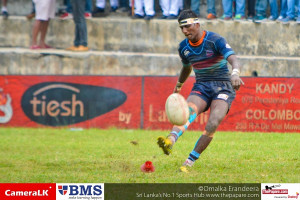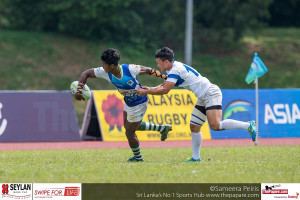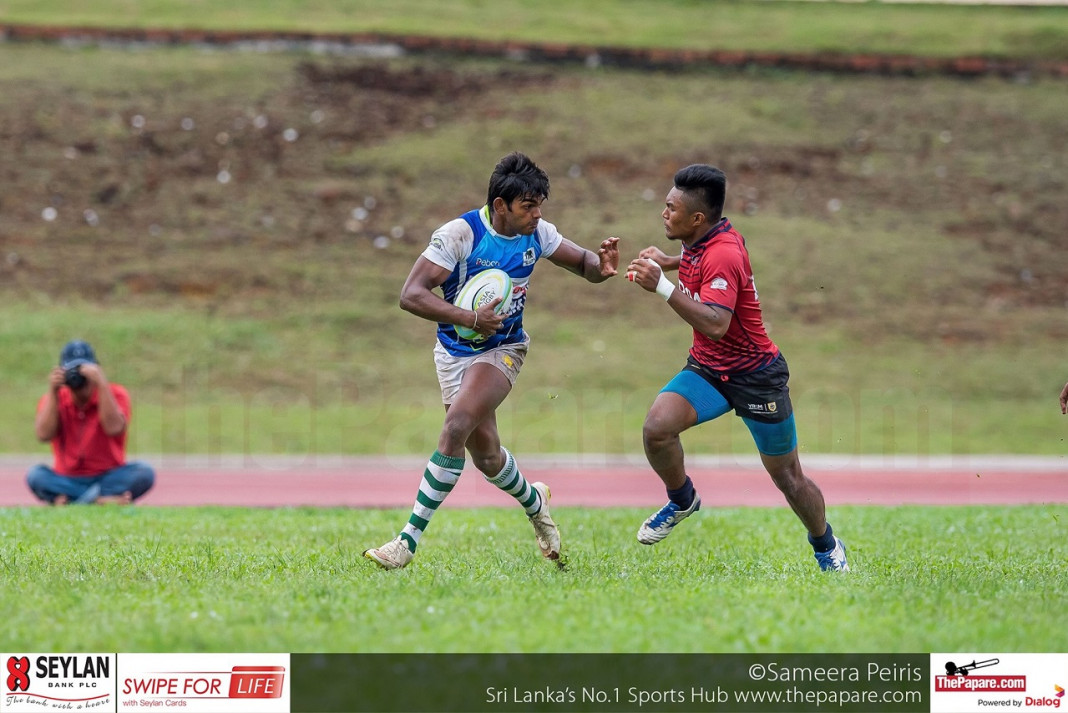High hopes were held for the Junior Tuskers as they travelled to Malaysia for the Asian Rugby Under 19 Division 1 Championship. After the 61 point drubbing at the hands of Hong Kong and the last minute loss to Chinese Taipei, we would like to imagine that all criticism will be of a constructive nature.
The numbers are not good if you are a Sri Lankan fan: played three, lost two, 8 tries scored with 16 conceded, 52 points for and 113 points against. The tour and the team as a whole can only be seen as a failure if there is no learning taken from it.
So what can be learnt?
The first thing we must acknowledge is that a full review must be taken and changes must be made. The preparation time from the end of the school season to the beginning of the tournament was five months, the original squad chosen was 40 players. How can we best use the five months to get our best 40 players ready for this tournament. Some players had completed a pre-season with a club team while others had no planned training program at all.

Now let us look at the actual game play. Is 45 missed tackles, five penalties and two yellow cards for high tackles enough of an indication that we need to spend more time on the finer details of tracking and tackling? And those are the statistics for just one game. We could review the breakdown analysis where the turnovers, penalties and ineffective clean outs 
What did our boys do well?
Our set piece was solid without being spectacular and the team did not shy away from contact, which points to players who have courage but lack technical know-how. The good news is that correct tackle technique can be taught while being brave cannot. Accuracy at the breakdown is a coachable skill, knowing your role in the defensive system can be learnt, 
The focus on correct technique and the attention to the most minute detail is lacking at all levels in Sri Lankan rugby. If you watch the players going into contact in the Kandy Sports Club verses Havelock Sports Club match played last weekend you will see the clean out at the breakdown was often too high and often ineffective. These are some of the best club players in the country and as with the Junior Tuckers there is no lack of courage, there is only a lack in correct technique. Low tackles and effective clean outs are more the exception than the rule.
These areas of improvement can be seen by all and there are many parts of the tour that are unseen. The leadership group on the field, the way the team worked together while on tour and the relationship with the coaches and the team. There can be excuses for the results and performances but let us not focus on blaming people for their perceived errors because I believe that all those involved with this group would have done so with their best intentions at heart. Instead let us play the long game and look to the future. We will be at this tournament again next year so let us look at the solutions we can implement with the knowledge that changes need to be made.




















